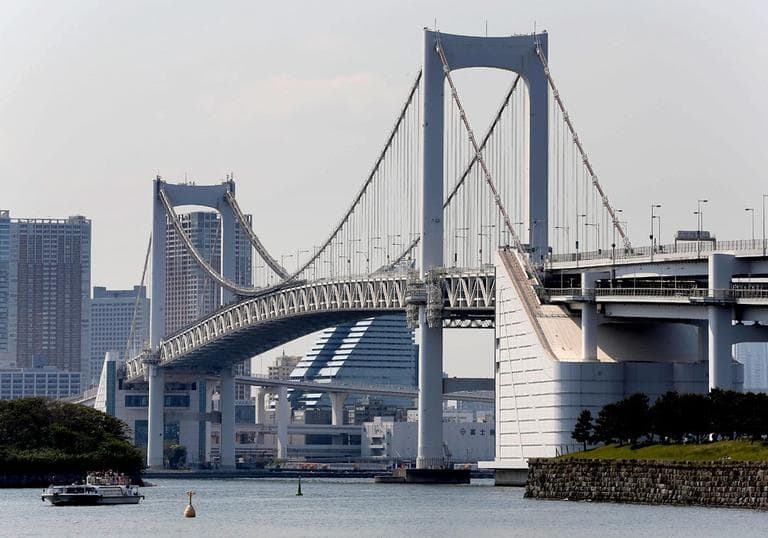Advertisement
The New Politics And Economy Of Japan
ResumeBetween China and the United States. "Abe-nomics." Talk of remilitarization. We'll check in.

Put yourself in Japan’s shoes for a minute. You had a great run building cars and Walkmen. Grabbed the American market. Got incredibly rich.
Then here comes China, eating your lunch in manufacturing. Getting pushy in the neighborhood. But your constitution — written by Americans — reins in your military.
Now your economy’s in the tank. Your population’s aging. China’s looming. What to do?
Japan just put nationalist prime minister Shinzo Abe back in power. For "Abe-nomics" and, maybe, remilitarization.
This hour, On Point: A struggling Japan looks to restart.
-- Tom Ashbrook
Guests
Jacob Schlesinger, Japan Editor in Chief at The Wall Street Journal.
Mike Mochizuki, professor of political science and international affairs at the George Washington University's Elliot School of International Affairs. Co-editor and author of "The Japan-U.S. Alliance and China-Taiwan Relations: Implications for Okinawa" and "Japan in International Politics: The Foreign Policies of an Adaptive State."
Yuki Tatsumi, senior associate of the East Asia program at the Henry L. Stimson Center and co-author of "Global Security Watch: Japan" and "Japan's National Security Policy Infrastructure: Can Tokyo Meet Washington's Expectations?"
Hugh Patrick, founder and director of the Center on Japanese Economy and Business at Columbia Business School and author of "Reviving Japan’s Economy: Problems and Prescriptions," "Crisis and Change in the Japanese Financial System" and "Asia's New Giant How the Japanese Economy Works"
From Tom's Reading List
The New York Times: Election Win By Ruling Party Signals Change In Japan: "By securing control of both houses of Parliament for up to three years, the win offers Prime Minister Shinzo Abe — an outspoken nationalist who promises to revitalize Japan’s deflationary economy and strengthen its military — the chance to be the most transformative leader in a decade."
The Economist: Man With Plan: "Despite the party’s history of tending to vested interests, it has taken up the economic concerns of a broader slice of the population. In particular, the fizz of 'Abenomics', the programme of monetary easing, fiscal stimulus and structural reforms, has caught on with the country. Businesses large and small, along with their employees, are the loudest cheerleaders for the economic revival plan."
The Washington Post: Can Japan’s Shinzo Abe Deliver On Deeper Reforms?: "Mr. Abe is likely to push to restart many of the nuclear reactors that were shut after a 2011 earthquake and tsunami. And he will seek to reinterpret Japan’s “peace constitution” to allow its military to engage not only in self-defense but also in collective self-defense — to come to the aid of a U.S. ship, say, if it is attacked by North Korea."
This program aired on July 24, 2013.